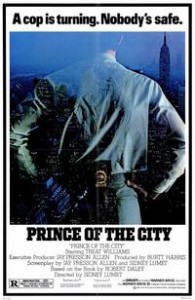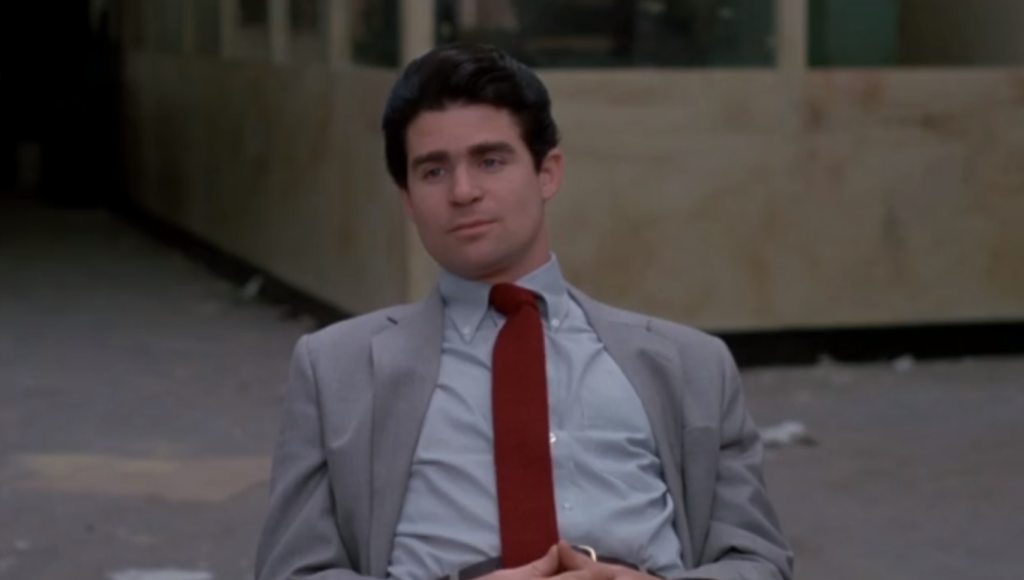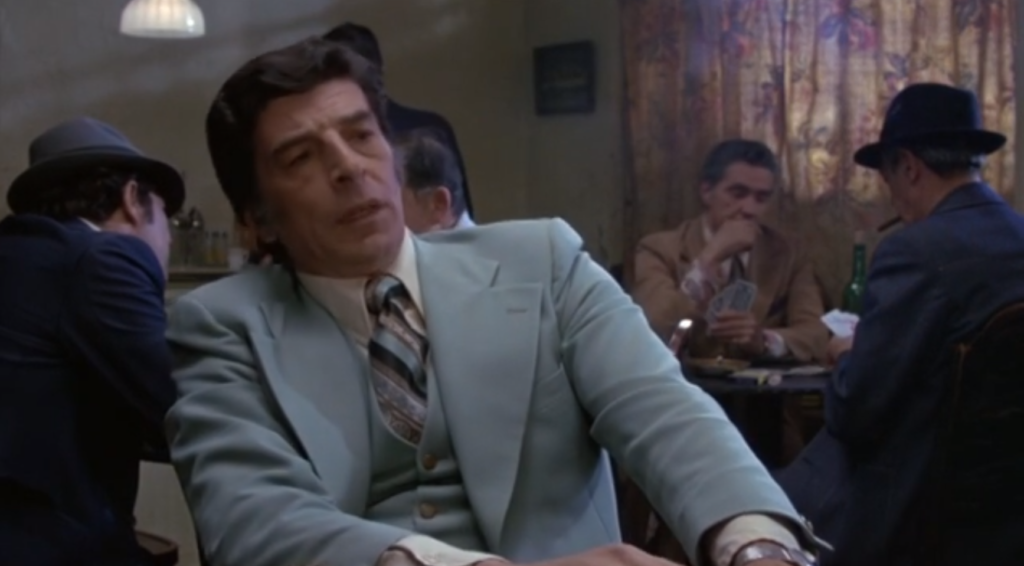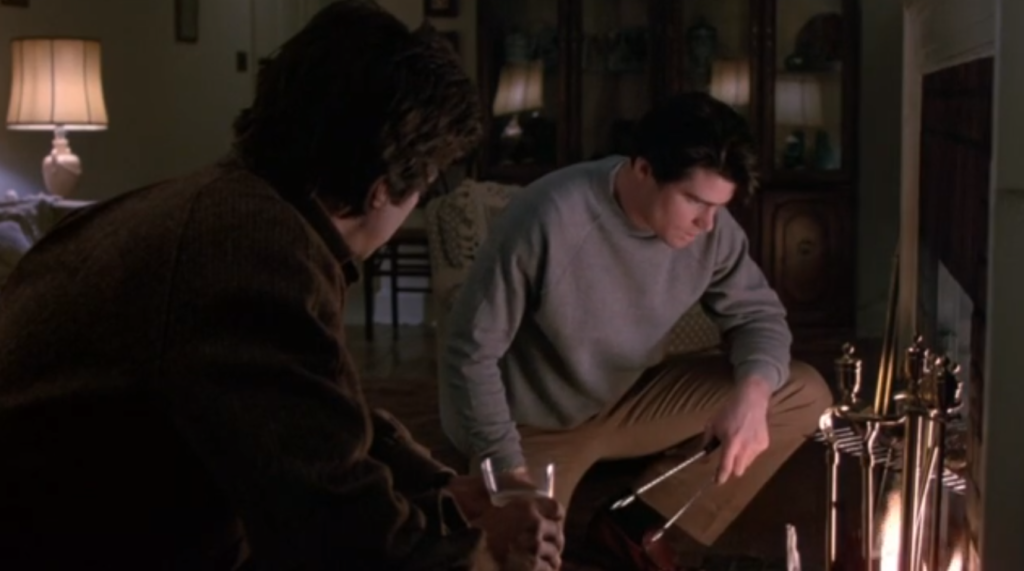|

Synopsis:
A narcotics detective (Treat Williams) agrees to cooperate with the lead investigators (Norman Parker and Paul Roebling) of a special commission on corruption, but vows never to “turn” on his partners (Jerry Orbach, Richard Foronjy, Don Billett, and Kenny Marino).
|
|
Genres, Themes, Actors, and Directors:
- Corruption
- Police
- Sidney Lumet Films
- Treat Williams Films
Review:
Sidney Lumet’s follow-up to perhaps the most famous film about police corruption in New York City — Serpico (1973) — was this equally compelling film (based on a book by cop-turned-author Robert Daley) about NYPD detective Robert Leuci, whose testimony and secret recordings helped to indict more than four dozen NYPD narcotics detectives. Jay Presson Allen — screenwriter for Marnie (1964), The Prime of Miss Jean Brodie (1969), and Cabaret (1972) — wrote the lengthy script after interviewing nearly everyone in Daley’s book and listening to Leuci’s recordings; the result is a smart, tension-filled, consistently absorbing character study about a man — like Frank Serpico — who feels he has no choice but to speak out against graft and corruption (his conscience won’t allow otherwise), yet whose life, family, friendships, integrity, and identity (“I sleep with my wife, but I live with my partners!”) are put at risk by this decision. Williams gives a nuanced performance in a highly complex role, and is surrounded by a fine supporting cast. This flick deserves wider recognition, and I’m slightly mystified why it’s not better known.
Note: Leuci died last year at the age of 75.
Redeeming Qualities and Moments:
- Treat Williams as Danny Ciello (nominated as one of the Best Actors of the Year by Peary in his Alternate Oscars)

- Jerry Orbach as Gus Levy

- Andrzej Bartkowiak’s cinematography

- Paul Chihara’s atmospheric score
Must See?
Yes, as an absorbing drama with a powerful lead performance.
Categories
- Noteworthy Performance(s)
Links:
|
One thought on “Prince of the City (1981)”
Must-see.
In agreement with what’s written and I’m also mystified as to why this film isn’t better-known or more-talked-about. Certainly some of Lumet’s lesser-known films *shouldn’t* be talked about because they are terrible films (and one wonders what Lumet could possibly have been thinking while directing them).
But that’s not the case here. I’m thinking that the length (for a film of this type: a police procedural) may put some off, yet the time seems to fly by.
The memorable standouts are Williams (who almost never stands out in a film; Lumet must have really pushed or inspired him) and Orbach.
I hadn’t seen this film since its initial release but, on a rewatch, I found it to be very compelling.